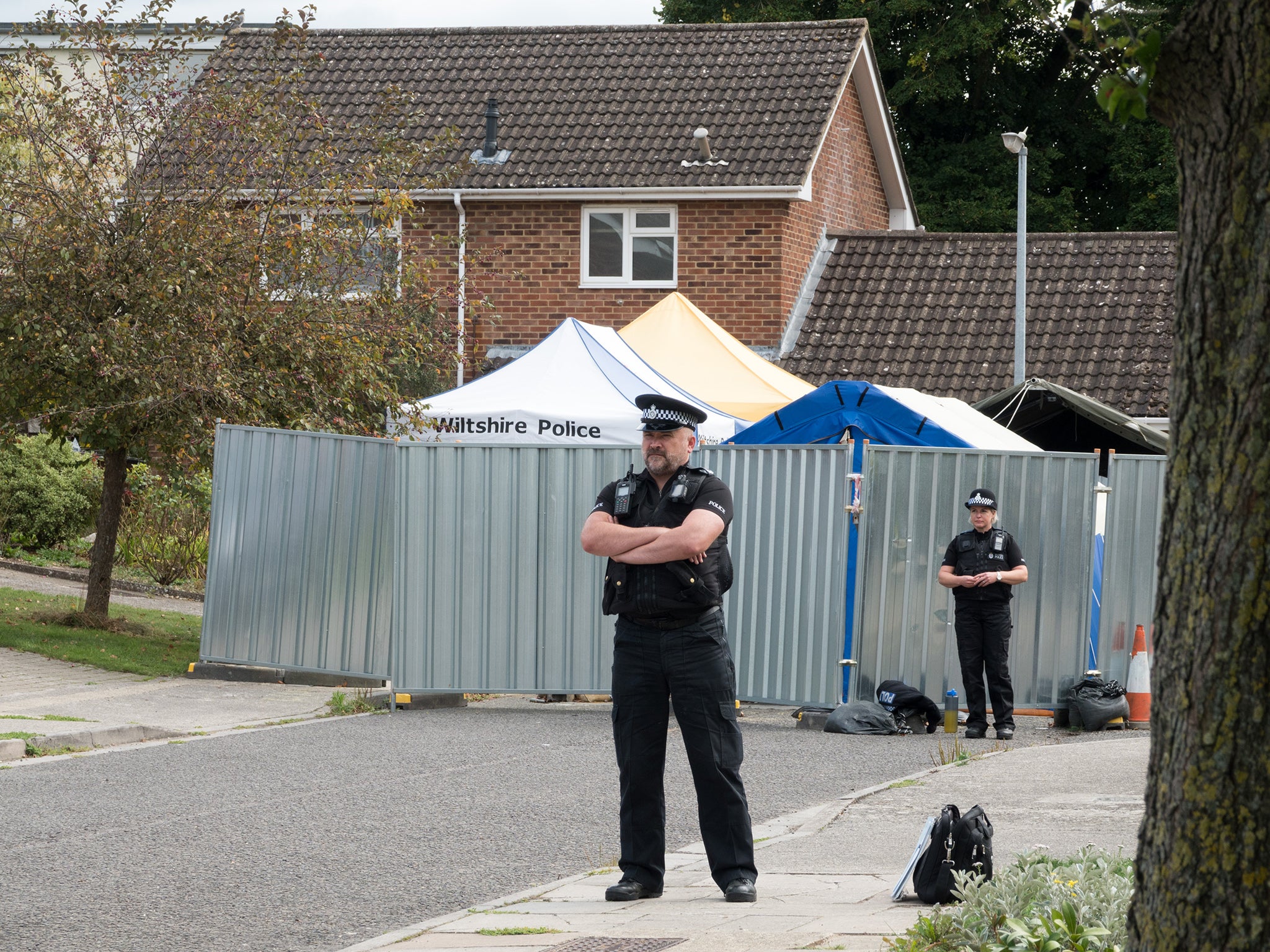Sergei Skripal’s house to have roof removed in novichok decontamination work
Former Russian spy's house and home where Dawn Sturgess was fatally poisoned to be ‘thoroughly cleaned and returned to normal use as soon as possible’
Your support helps us to tell the story
From reproductive rights to climate change to Big Tech, The Independent is on the ground when the story is developing. Whether it's investigating the financials of Elon Musk's pro-Trump PAC or producing our latest documentary, 'The A Word', which shines a light on the American women fighting for reproductive rights, we know how important it is to parse out the facts from the messaging.
At such a critical moment in US history, we need reporters on the ground. Your donation allows us to keep sending journalists to speak to both sides of the story.
The Independent is trusted by Americans across the entire political spectrum. And unlike many other quality news outlets, we choose not to lock Americans out of our reporting and analysis with paywalls. We believe quality journalism should be available to everyone, paid for by those who can afford it.
Your support makes all the difference.The roof of Sergei Skripal’s home is to be completely removed as part of decontamination work to remove potential traces of nerve agent.
Officials said the cleaning process could take more than four months in Salisbury, where the former Russian double agent was poisoned with novichok in March.
In a letter sent to residents, Wiltshire Council said that work starting on Monday would see contractors erect scaffolding to cover the house and garage with a “sealed frame”.
The council’s director of public of health, Tracy Daszkiewicz, told residents a military team will then dismantle and remove the roofs on the two buildings.
“All materials will be wrapped and sealed on site before being removed safely from the premises,” the letter added.
“Once the covered frame is in place, the deconstruction work is expected to take around two weeks.
“This specialist work will be carried out by the military team. When that work is completed, contractors will move on site to build a replacement roof for the house and adjoining garage.”
Ms Daszkiewicz said the risk to public health remains “low”, adding: “The priority is to make sure that the two remaining sites affected by the 2018 incidents are thoroughly cleaned and returned to normal use as soon as possible.”
Further sampling will carried out to ensure Mr Skripal’s former home is safe to be reopened to the public, officials said.
The clean-up has been taking place ever since he and his daughter Yulia fell ill on 5 March, but work paused over Christmas to allow local residents to enjoy festivities undisturbed.

The project is being led by the Department for Environment, Food and Rural Affairs (Defra) but military teams will carry out the work, a Ministry of Defence spokesman said.
It is the same team of experts who were involved in the decontamination carried out so far, from the chemical, biological, radiological and nuclear unit, he added.
Defra said focusing on removing the roofs was part of their “highly precautionary”, extensive and meticulous work on the property.
A spokesperson said no further detail could be provided on the plan for disposal, other than that it would be carried out “safely”.
A statement added: “We are working with the site owner, Wiltshire Council and other partners to ensure that the house will be fully repaired and returned to a fit state to live in.”
Police believe GRU spies smeared novichok on Mr Skripal’s door, causing him to fall severely ill alongside his daughter, and a police officer who investigated the attack.
The three victims of the initial attack were successfully treated at Salisbury District Hospital, but a discarded bottle of novichok was later found in Salisbury.
Charlie Rowley unwittingly gave the poison, which was disguised in a counterfeit perfume bottle, to his partner Dawn Sturgess.
The mother-of-three died in July after applying it to her wrists at Mr Rowley’s home in Amesbury, which will also undergo decontamination work.
Alistair Cunningham, chair of the South Wiltshire Recovery Coordinating Group, said the clean-up operation had been a “thorough and complicated process”.
“While there is still work to be undertaken, the end is in sight, which I’m sure everyone will welcome,” he added. “Salisbury and Amesbury are looking ahead to a positive 2019.”
Some local businesses have not reopened since the attack in March, and the local economy has suffered from a decline in tourism and shopping visits.
The police investigation into the attack continues and Metropolitan Police commissioner Cressida Dick has said her officers will “never give up” trying to bring the culprits to justice.
Two GRU agents were charged with launching the attack on Mr Skripal in September, but police revealed that they flew back to Russia immediately after the attempted assassination.
Both men are subject to Interpol red notices and European Arrest Warrants, but the prospect of them leaving Russia or being extradited appears slim as the Kremlin continues to deny any involvement.
The suspects gave an interview to state media that generated global ridicule, after they claimed they were sports supplement salesmen who travelled to Salisbury two days in a row because of its “internationally famous” cathedral.

Join our commenting forum
Join thought-provoking conversations, follow other Independent readers and see their replies
Comments